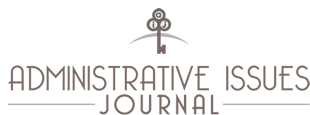
Abstract
The design of governmental regulations creates an assumption that policy implementation is linear in nature and is unproblematic (Dorey, 2005). As states, local education agencies (LEAs), and eventually school leaders and teachers engage in the policy implementation process, it becomes evident that this hierarchal dissemination of policy results in various interpretations and actions (Spillane, 1996, 2002). In the 1997 Individuals with Disabilities Education Act (IDEA) and the 2001 No Child Left Behind (NCLB) Act, the legislative language clearly states that students with disabilities are to participate in assessments with accommodations as described on their Individualized Education Plan (IEP). Research suggests that teachers continue to have difficulty discriminating between accommodations and modifications and between learning strategies and accommodations (Bruininks et al., 1994; Ysseldyke et al., 2001), as well as choosing accommodations that benefit students (Fletcher et al., 2006; Fuchs, Fuchs, Eaton, Hamlett, & Karns, 2000; Helwig & Tindal, 2003). It may be that state-level guidance for policy implementation is addressed at the procedural level, while the IEP teams need guidance on the substantive level of accommodation assignments. This paper draws on policy implementation literature in general and accommodation policy literature specifically to understand the relationship between how states and districts approach accommodations policy and the resulting impact on the decision-making process used by the IEP team to assign accommodations. The authors make suggestions for considering a framework for a professional development experience addressing accommodation assignments. The authors’ suggestions seek to improve the substantive consideration between policy and practice to enhance the decision-making process used by IEP teams.
Recommended Citation
HEMMER, LYNN and BAKER, CANDACE
(2011)
"FEDERAL ACCOMMODATION POLICY IN PRACTICE: IMPLICATIONS FOR A SUBSTANTIVE PROCESS,"
Administrative Issues Journal: Vol. 1:
Iss.
2, Article 9.
Available at:
https://dc.swosu.edu/aij/vol1/iss2/9
Included in
Health and Medical Administration Commons, Higher Education Administration Commons, Public Administration Commons
Please consider contributing an article to Administrative Issues Journal, our submission policy: http://www.swosu.edu/academics/aij/guidelines.aspx
